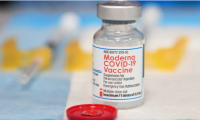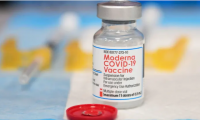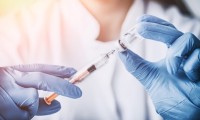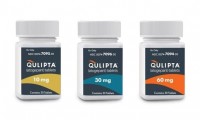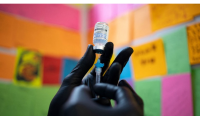-
Novavax surges after biotech company unveils job cuts, positive vaccine data
- Source: drugdu
- 137
- May 11, 2023
-
Spikevax approved for use in children aged 6 months to 5 years
- Source: drugdu
- 135
- May 11, 2023
-
As COVID vaccine sales plummet, BioNTech looks for new growth opportunities
- Source: drugdu
- 133
- May 10, 2023
-
Moderna says it expects up to $15 billion in sales of Covid, RSV, flu vaccines in 2027
- Source: drugdu
- 123
- May 2, 2023
-
Merck results beat expectations despite a big drop in sales of Covid antiviral treatment
- Source: drugdu
- 127
- May 1, 2023
-
Moderna says it expects up to $15 billion in sales of Covid, RSV, flu vaccines in 2027
- Source: drugdu
- 143
- April 30, 2023
-
Exploring Doggybone ™ DNA Technology
- Source: drugdu
- 118
- April 30, 2023
-
survey
- Source: drugdu
- 131
- April 27, 2023
-
Drugmakers take sides in Amgen, Regeneron fight over antibody patents
- Source: drugdu
- 171
- April 25, 2023
-
CDC signs off on additional Covid-19 booster doses for certain people
- Source: drugdu
- 107
- April 20, 2023
your submission has already been received.
OK
Subscribe
Please enter a valid Email address!
Submit
The most relevant industry news & insight will be sent to you every two weeks.




